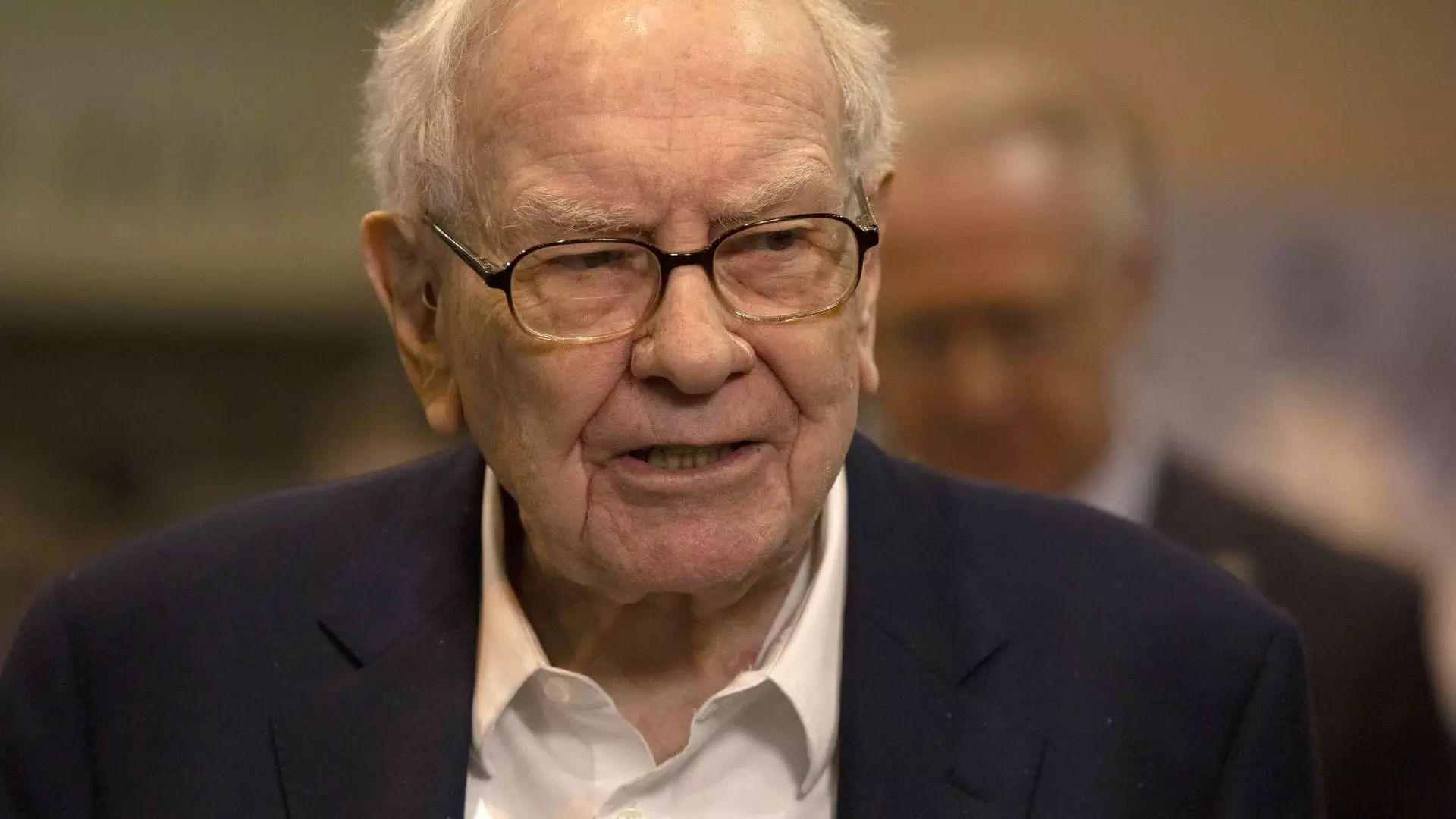In a remarkable display of financial strategy, Berkshire Hathaway’s liquid assets soared beyond $300 billion in the third quarter of 2023, marking a substantial rise from previous quarters. This unprecedented cash growth showcased the conglomerate’s strategic maneuvering under the leadership of its iconic CEO, Warren Buffett. By the close of September, the cash reserves surged to an astounding $325.2 billion, a significant increase from $276.9 billion just a quarter prior. This financial milestone invites scrutiny of Buffett’s decisions around stock sales and repurchase strategies.
Warren Buffett’s approach during this quarter was characterized by notable stock divestitures, particularly in heavyweight investments like Apple and Bank of America. Over the course of the quarter, Berkshire Hathaway divested approximately a quarter of its massive Apple stake, continuing a trend that has spanned four consecutive quarters. Additionally, since July, the company’s liquidation of its Bank of America holdings has garnered over $10 billion—a clear indication of strategic recalibration amidst a dynamic market landscape.
Buffett’s selling strategy is particularly intriguing against the backdrop of a market that has generally trended upwards. With stock prices hitting record highs, his decision to offload stock instead of reinvesting or repurchasing indicates a cautious, perhaps even contrarian, outlook on current market conditions. During this span, Berkshire Hathaway liquidated a total of $36.1 billion in stock, underscoring a formidable shift in investment strategy.
A noteworthy aspect of Berkshire’s financial behavior in the third quarter was the absence of share repurchases. Historically, Buffett has maintained an active repurchase strategy when he believes that the stock price is undervalued compared to its intrinsic worth. However, this period saw Buffett refrain from buying back shares, a stark contrast to earlier in the year when the company spent significantly less than in previous quarters—only $345 million compared to $2 billion in each of the two quarters before.
This decision to hold back on repurchases is particularly striking given that Berkshire Hathaway shares have outperformed the S&P 500, rising by 25% compared to the index’s 20.1%. Buffett’s philosophy seems to lean towards maintaining cash reserves as a buffer against potential future market volatility, thereby allowing flexibility in investment opportunities as they arise.
When analyzing Berkshire Hathaway’s operational earnings, the latest reports have revealed that profits from its diverse array of owned businesses amounted to $10.1 billion for the third quarter. This figure reflects a decline of roughly 6% year-over-year, primarily driven by weaker insurance underwriting performance. Despite this downturn, the results have mostly aligned with market expectations, revealing a cautious yet stable operational outlook for the conglomerate.
The juxtaposition of declining earnings with increased cash reserves raises questions about the effectiveness of Berkshire’s investment strategies. While diversification typically serves as a buffer against market fluctuations, one can’t help but wonder if Buffett’s selling spree and lack of reinvestment signal a deeper concern about potential economic slowdowns.
Buffett’s cautious stance aligns with broader market sentiments, where there are increasing apprehensions regarding economic sustainability. His observation of rising interest rates and growing fiscal deficits resonates with concerns expressed by other notable investors. The resurgence of the 10-year Treasury yield, which surpassed 4% in the previous month, reflects shifting financial conditions that could influence future investment decisions.
Moreover, the looming presidential election casts further uncertainty, with concerns that neither candidate offers a substantial plan to address the fiscal deficit. Buffett’s stock-selling strategy, which he hinted at earlier in the year concerning potential increases in capital gains taxes, may indicate a broader, more cautious investment philosophy in anticipation of shifting economic policies.
Berkshire Hathaway’s strategy in the third quarter of 2023 highlights a pronounced shift in its financial management approach. As Buffett continues to sell off significant stock holdings while building an impressive cash pile, the implications of these decisions remain to be seen. Faced with an unpredictable economic climate and growing concerns over market stability, Buffett’s balancing act between holding cash reserves and making strategic investments will determine Berkshire’s ability to navigate forthcoming challenges effectively. With trends evolving, only time will reveal the success or repercussions of his current investment strategies.

